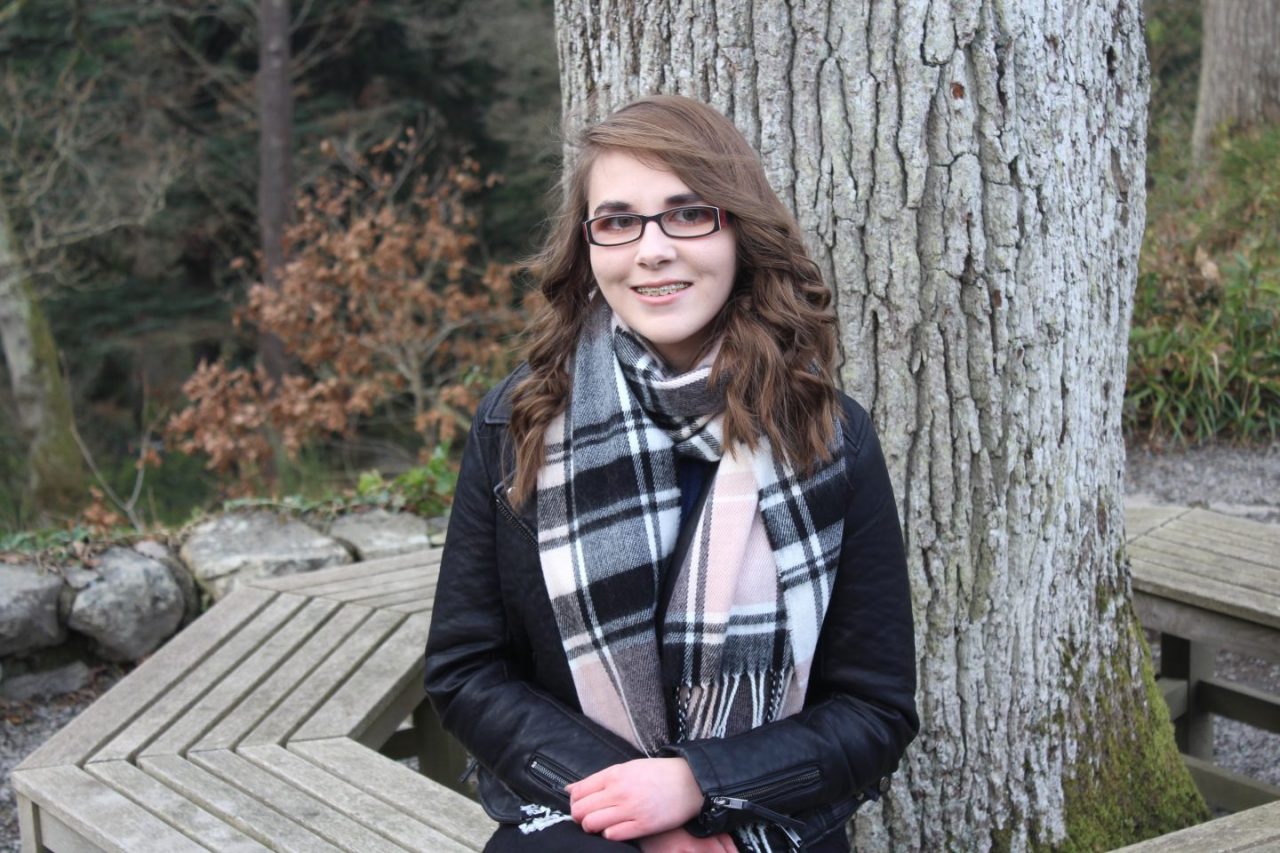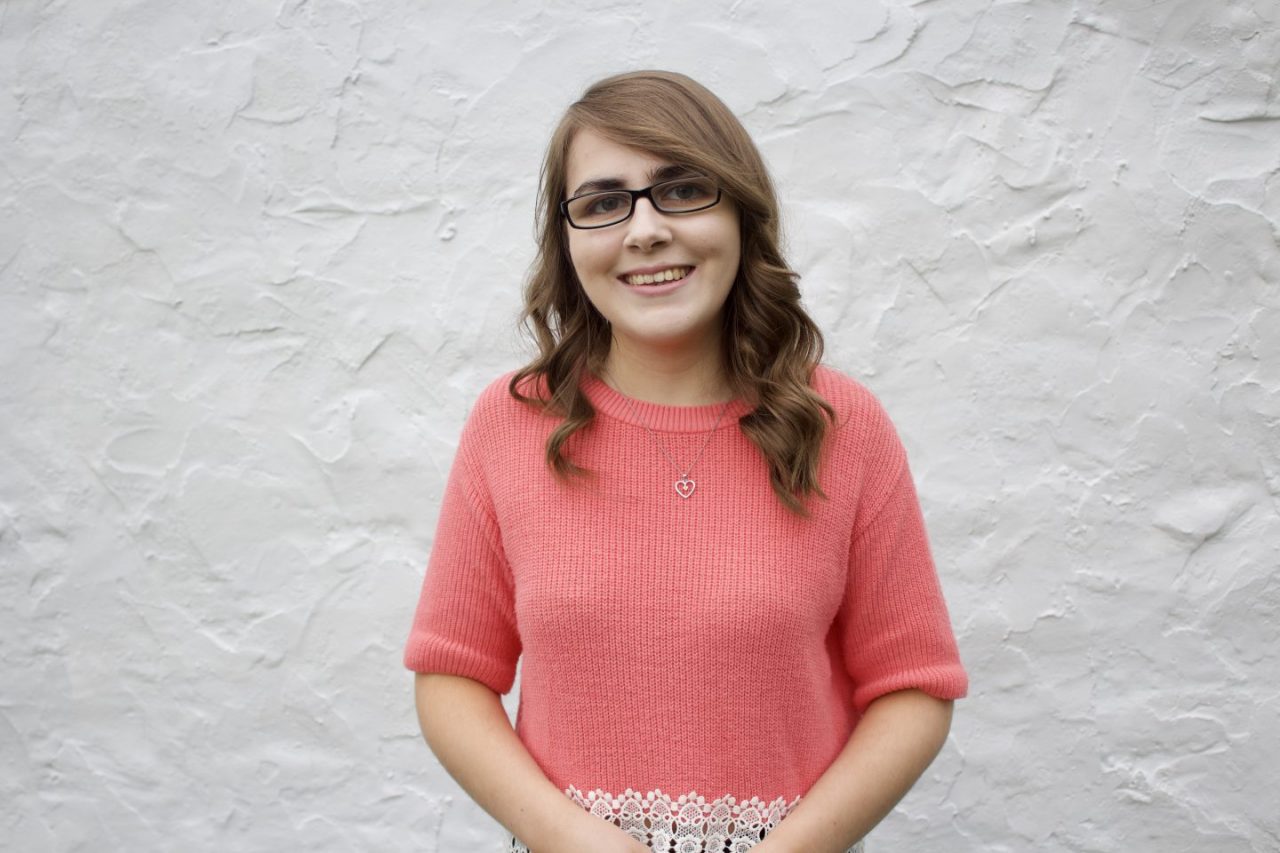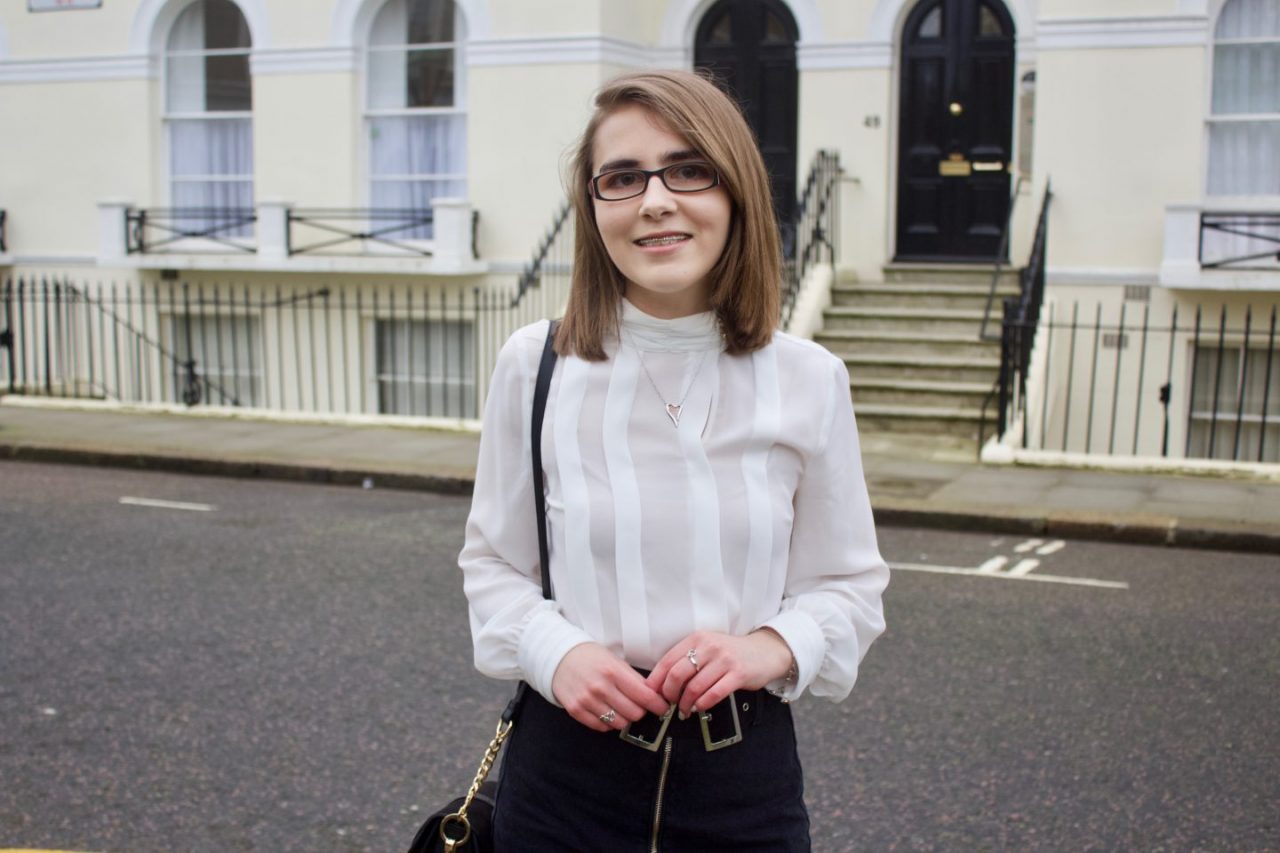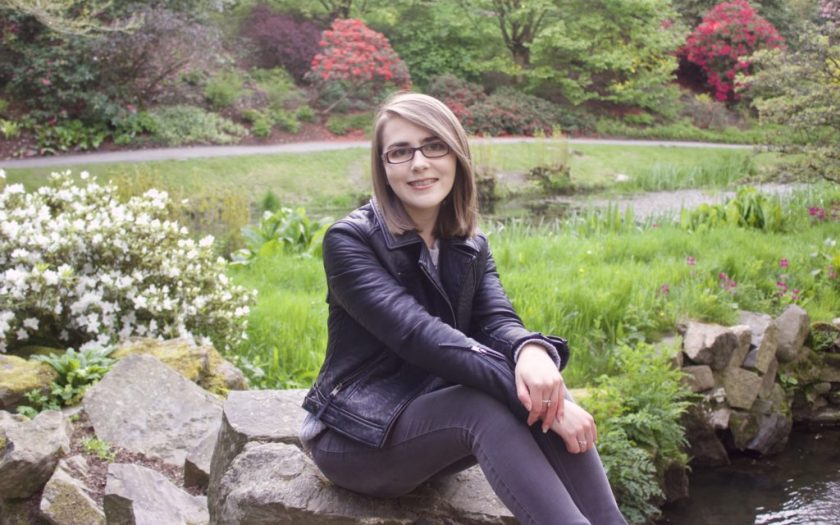From ‘Elin Williams’

RP REFLECTIONS: WHAT I’VE LEARNED ABOUT MY VISION IMPAIRMENT IN 2020, SO FAR
Wow, well that was a long blogging break. I think we can all agree that 2020 has been, what shall we say? Strange? Shocking? Devastating? But we’ve also witnessed a great source of strength, courage and community both in terms of the pandemic but also as part of what looks to be one of, if not the biggest, civil rights movements in history.
There has, and continues to be, incredibly important advocacy work stemming from the rise of the #BlackLivesMatter movement, however, I don’t feel educated enough to address the topic here so today’s post sees me dipping back into the reflective waters of talking through aspects of living with sight loss. But I didn’t want to go into this post all blasé and not address it so I just want to note that there are so many articles, books, blogs and resources out there where you can head to find out more about the movement and how you can help.
The only way we can move forward is by educating ourselves, supporting others and join forces to create change. It can happen.

IT CAN BE REFRESHING NOT TO TALK ABOUT IT
I’ve spent the last five years of my life divulging details about my disability online, indulging in curating lengthy blog posts and often referring to the positives I’ve discovered through writing about my experiences on this little corner of the internet.
So this lesson is a little contradictory of me.
You might remember me speaking at great length about this topic last year in my post titled ‘Sometimes I don’t want to talk about my disability’. A lot of what I covered in that post still stands.
Untangling strands of my disability and offering those details to others, although incredibly rewarding I’ve realised, it can also be exhausting.

RP REFLECTIONS
You might remember me introducing RP Reflections to the blog a few months ago now; A series where I hoped to delve a little deeper into aspects of my eye condition that I hadn’t necessarily reviewed or touched on before, not on the internet anyways.
I think 2020 has given many of us the opportunity to reflect inwardly on our lives, what we’ve learned and what we want going forward. We all know that I’m one for a good ol’ reflective session so, I thought I’d bring you the second instalment of RP Reflections and lend a post to a few of the lessons I’ve learned about and from my vision impairment in 2020 up to this point.
Let’s dive straight in, shall we?

Stepping away from my blog and allowing myself the space to lean further into other aspects of my life that I wanted to concentrate on afforded me the opportunity to remind myself that, although I’ve built this platform on the basis of wanting to raise awareness and help others in a similar situation, it’s absolutely ok to take a breath and return when I’m feeling up to speaking out again.
I’ve not completely closed myself off from the topic of my vision impairment, that would be simply impossible since I often need to talk through access needs or something along those lines. But stepping away from my blog, although a little odd to begin with, has given me the opportunity and the space to muddle through life without the question of ‘What VI related topic should I write about next?’ permeating my thoughts.
This has come with repercussions of course; stepping away from this space has meant that I’ve felt myself slip into a state of disconnect, from the community we’ve built on here but the online disability community too.
This left a feeling of loneliness in its wake but as I take slow steps back into this online space, I hope that feeling dissipates.

SCREEN TIME = SENSITIVITY = LOTS OF BREAKS NEEDED
I thought I’d throw this one in here because I often refer to the sensitivity of my eyes without necessarily addressing the baseline and the catalyst of it.
So here’s one.
Technology makes the world accessible to me and so, a lot of my life revolves around staring at a screen.
But it’s a catch 22 situation since it can also be the barer of pain and sensitivity.
I’ve always been conscious of this but if there’s one thing I’ve honed in on this year, it’s that frequently stepping away from the screen, even for a few minutes or so is what I need to do to ease that inevitability.
-

-


-
IT CAN BE SCARY, AND THAT’S OK
I am no stranger to the trials and tribulations of Retinitis Pigmentosa. Living with an unpredictable deteriorating eye condition tinges my life with hints of, dare I say it? Worry and fear. Feelings that are often more prominent than I care to admit.
It’s something I’ve touched on a few times on here so I won’t dig much deeper into the specifics (she says before writing about 10 paragraphs on the topic) but I think this lesson is an important one to address.
My Mum and I have been taking short walks throughout the course of lockdown, that’s when my chronic illness grants me the luxury. The beauty of living in the countryside is that we have unlimited access to an array of yawning fields. So that’s the scene I’m setting here.
Each time, I’ve noticed how different the world looks to me now. It’s something I’ve always recognised whenever another fraction of eyesight slips away from me but acknowledging it doesn’t come easy.
On a walk, the only thing I could see was a slither of green land, out of focus and much darker through my view than it would have been this time last year.
There were flocks of sheep framing us as we picked our way through the long grass. I could hear them, they were close, but I couldn’t see them.
Whereas I would have felt relatively confident in unclasping my hand from my mum’s elbow a couple of years ago, I’ve been much more tentative in this approach in recent months, completely disregarding it nine times out of ten.
When I wandered back into my room, it looked dark and distorted – the sun often leaves this kind of pattern in my view when I transition back indoors again – and I noted how it took longer for my cream coloured furniture to return to their normal blurry shapes.
This fearful side of living with RP is one that’s hard to articulate in a short supply of words so I might dedicate a full post to it one day. But some of these feelings correlate with details I touched on in my post, Sight Loss and Grief, earlier this year where I unearthed some rather insidious thoughts.
These feelings have been magnified in many forms when I’ve experienced deterioration in the past but as I note that the world is fading before me gradually every day, I can’t help but feel their weight more intensely. Similarly, not knowing what struggles and level of deterioration may be lurking around the corner often keeps me suspended in this state of fear.
Despite the fact that I try to brush them under the carpet with my broom of positivity, sometimes they’re feelings that can’t be ignored so here’s me acknowledging them and recognising the fact that experiencing them is ok, it’s natural and I know I’m not the only one.
I’m trying to remind myself that yes, there are negatives and tough moments to wade through but they’re not a benchmark for how things will be every day.
I think there’s strength in recognising that.

A POSITIVE TO MOST NEGATIVES
I think we need a lighter point after that last one, don’t we?
Despite it being the architect of many struggles, RP has definitely offered many positives in my life.
At the end of 2019, I made the decision to apply to become a mentor for young vision impaired people in the hope that sharing my experiences could help to guide them through whatever challenges or feelings they were decoding themselves.
Before starting my blog, I never thought I’d share my experiences with others, let alone in such a direct way as mentoring, having previously housed my thoughts in a little shell that no one could crack.
But investing my time in sharing my experiences and reflecting on how doing so can benefit others, has underlined the fact that a negative experience can be utilised in a positive way.
I’ve really tried to hone in on the fact that positives can be derived from the darkest moments and I hope that, by sharing that with others, it helps them to find the light too.

I USE IT TO HIDE MY CHRONIC ILLNESS
My last blog post was dedicated to this topic so I won’t keep rabbiting on here. But if there’s one thing that has become clear to me this year, it’s how my vision impairment often takes centre stage in disability-related conversations, camouflaging my chronic illness in the process.
Here’s a little taste of what I wrote in my full blog post on this which you can read here if you fancy.
“I had faced the repercussions of sharing aspects of my sight loss journey, some of which were exhausting to endure. In a way, knowing what results could be derived from sharing such a vulnerable aspect of life only magnified my wariness to divulge more.
It felt as though people believed that my CFS symptoms could never match the impacts sight loss was having on my life, and it meant that I grew tired of explaining.
So, I guess you could say that I started to suffer in silence since it seemed that my eye condition would always take centre stage. My chronic illness was cast aside, pushed to the shadows and it meant that I was scared to bring it back out again.
Hiding it became the less painful, and the less complicated option.”

-
IF I DON’T KNOW WHAT ELSE TO DO, LAUGH
Discovering my limitations when it comes to living as a disabled person has been… an interesting process. And living in a world which wasn’t designed for those of us who can’t see has been cause for many mishaps.
Meetings with pillars, walls, chairs, tables, open dishwasher doors, not to forget the oh so fun art of tripping and slipping up – and down – steps (you name it, it’s all happened), have left me black and blue and I can’t deny the times when a whisper of embarrassment has mingled with the pain.
All of these minor incidents have fed in to the way I view my life as a disabled person over the years and not knowing how to react to some of the situations I find myself in has left me in two minds in the past.
Part of me quietly expects my days to come complete with these little misfortunes amongst the bigger challenges that come in lieu of society not being up to scratch in terms of accessibility, equality and inclusion. Like I said before, there are moments of frustration and hints of sadness and grief when my family’s previously slightly blurry profiles are replaced by a more intense veil of darkness and brighter flourishes of flashing lights. But there are also situations with more of a light-hearted air like I mentioned above.
-
 Save
Save -

-
I’m always making jokes at my own expense in these situations and I’ve realised that this is what helps to puncture the anxiety, the tension and the pure unknowing of what is to come when it comes to my sight-stealing disease.
I don’t want to relegate every misfortune I have into the negative league and so, in order to combat that, I try to take things with a pinch of salt and wave things off with a giggle when I can.
Those were just a few things I’ve learned about my eye condition this year, condensed into slightly more digestible chunks of coherence than what they are when rallying around in my mind.
Through living with sight loss, I’ve found that I garner bucket loads of perspective as I inch further ahead in the journey and there’s always a lesson that comes complete with seeing things in a different way (literally in my case). So if this kind of post is something that interests you then I’ll happily share more of the lessons my disability equips me with in the future.
Everyone’s experience of RP is different so this is just my own train of thought, but if you’re also in the same boat, you might find a few threads of similarity that you can echo. So feel free to comment some of the things you learn from your vision impairment or disability. The conversation is open for anyone to freely share their stories and that’s what I love about this community so let’s chat below or you can also say hello over on Twitter, Facebook or Instagram.
Elin x
-

